The India Covid patients whose lonely deaths went viral
- Published
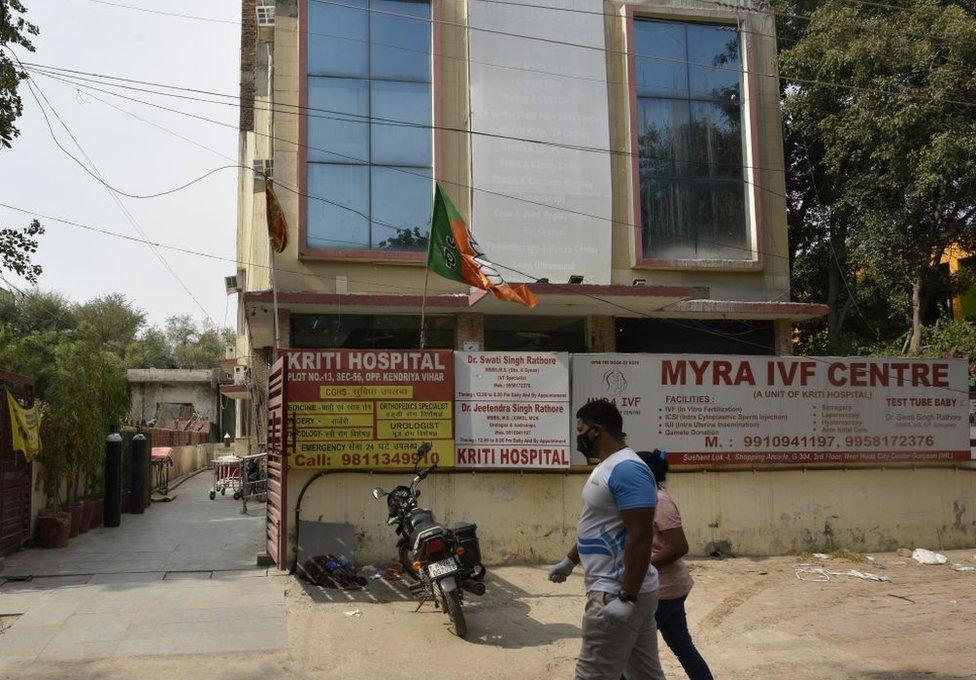
Kriti Hospital is in Gurugram, a satellite city of capital Delhi
In Delhi in April, six people died alone on a hospital ward, left there by doctors in the midst of the country's devastating second wave of Covid-19.
Video of the bodies left on the ward went viral, but the headlines soon moved on, leaving a void of information around what happened that night and a group of loved ones bound by tragedy.
In the footage, a man can be heard talking in the background as the camera phone pans around the room.
"Neither the doctor, nor the chemist is here. There is no-one at the reception," he says, as relatives go from bed to bed, trying to revive loved ones.
"How can doctors run away leaving patients for dead despite your presence?" a man is seen asking a police official.
"Dead," says a man in another video. "Dead. Everyone."
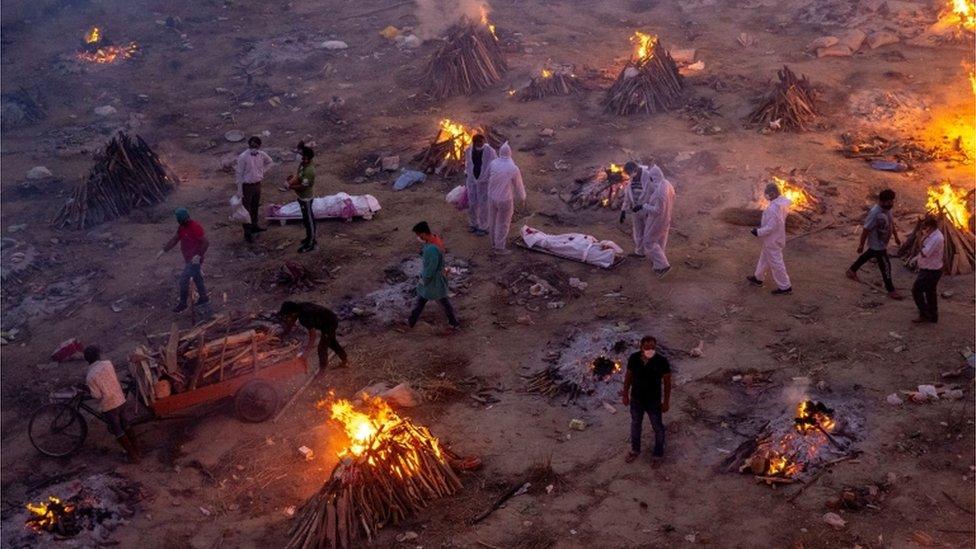
India has the second-highest death toll in the world from the coronavirus
The video was shot on the night of 30 April at an intensive care unit in Kriti hospital in Gurugram, a Delhi suburb.
Relatives of the dead say they barged into the ICU after they were unable to find doctors in the hallways, only to find the ICU also deserted. They have accused the doctors of abandoning the patients after the hospital ran out of oxygen.
The doctors, who were hiding elsewhere in the hospital, say they fled fearing violence from the families. The families say they never made any threats.
One month on, an internal inquiry is yet to confirm the cause of the deaths. No charges have been filed. The Gurugram Deputy Commissioner Yash Garg was unable to say when the investigation will be completed.
For the families, there is very little to go on.
'We want justice for our loved ones'
By April in India, the oxygen crunch was a nationwide concern, as the second wave of coronavirus was bringing India's healthcare system to its knees. Patients died on stretchers outside overwhelmed hospitals while crematoriums overflowed with the dead.
Patients died even as hospitals and families scrambled to arrange for oxygen supplies. Social media was awash with desperate pleas from doctors and relatives of sufferers alike.
The death of the six unattended patients was one of many tragedies, but the shocking nature of the video footage sent it careening around the world.
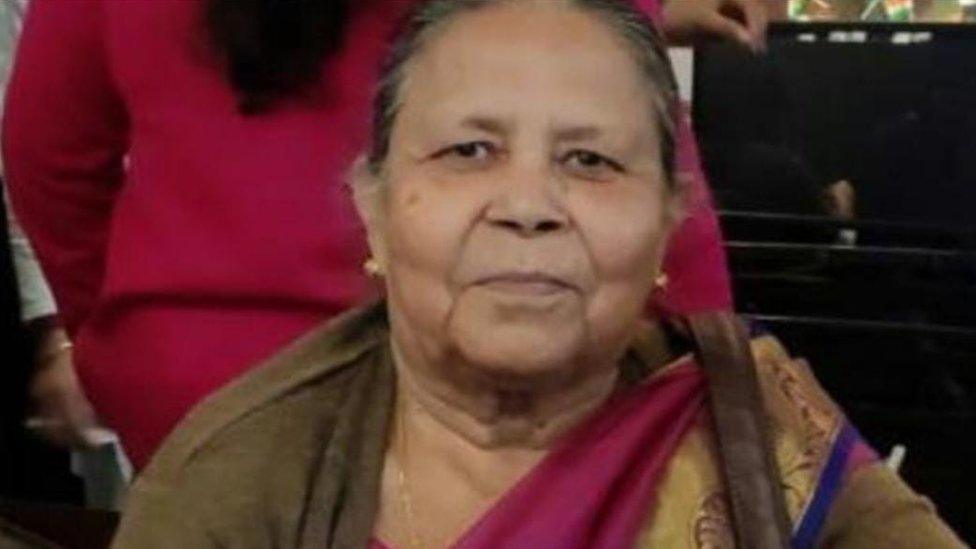
Geeta Sinha was among those who died that night
Then, when the story slipped from the headlines, a sense of disillusionment crept into the lives of the loved ones left behind.
A WhatsApp group created in the aftermath of the tragedy, once buzzing with messages of hope and support, filled with frustration and despair.
"We want justice for our loved ones," Namo Jain, a 17-year-old who lost his father that night, wrote in the group recently.
The group did not know each other before they were united by what happened, and they still only know one another via the WhatsApp group.
"We don't know each other by face, still we must be together to support one another," said Nirupama Verma, whose mother Gita Sinha was among those who died that night.
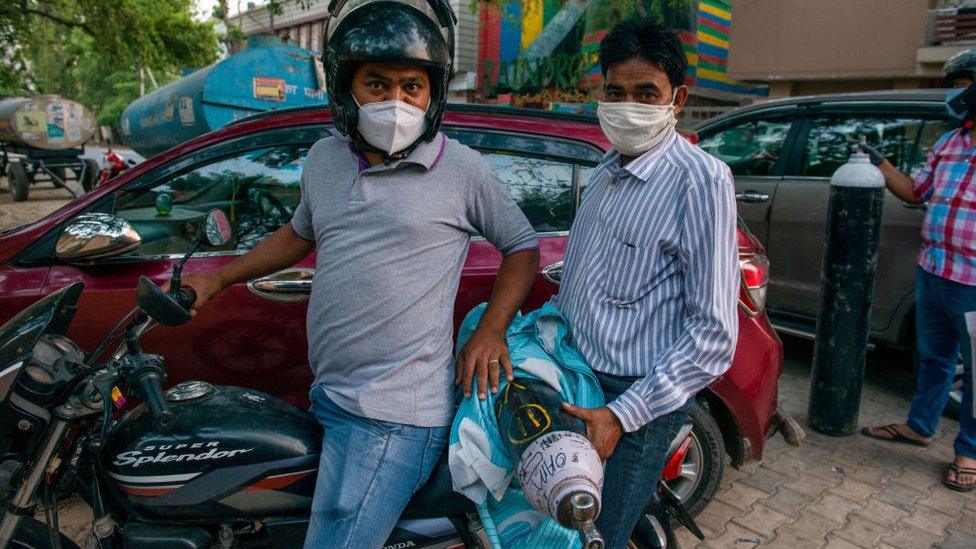
Families across India scrambled to find oxygen amid an acute shortage
Amandeep Chawla, whose father was among the six people who lost their lives, said he was not told of any oxygen shortage at Kriti hospital.
"We were assured [by the hospital staff] that two vehicles had gone out to fetch oxygen so there was no need to worry," he said.
Mr Chawla recalled seeing rows of oxygen cylinders near the main entrance. But by 21:00 local time, he said, most of the cylinders had disappeared, setting off panic among families of the patients.
As the night progressed, families grew more worried. At some point, according to their version of events, they realised that the staff had disappeared. Alarmed, some of them decided to check the ICU.
When they got there, they say, they found the ward deserted except for the bodies of their loved ones.
"There were no doctors, no hospital staff," said Mr Chawla. "They had run away."
The BBC was unable to verify the exact timeline of events that night - there are competing versions. It is unclear when the hospital staff left the ward and whether the patients were still alive at that time.
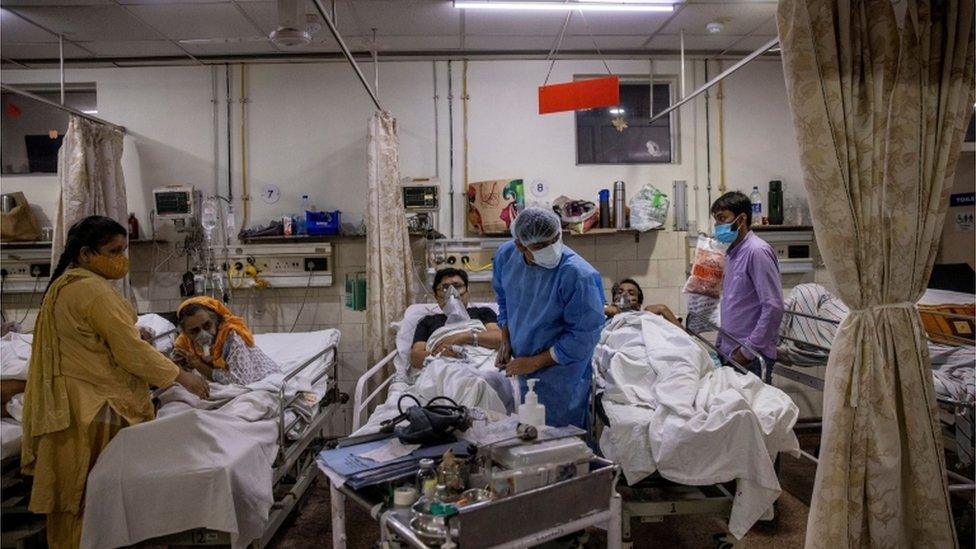
Oxygen shortages became a national problem in April when a deadly wave of infections overwhelmed hospitals
Hospital owner Swati Rathore told the BBC that the staff had briefly "gone into hiding" after they were attacked by some family members, a charge the families deny.
"There is a difference between hiding for safety and abandoning patients," Ms Rathore said, adding that she had asked her staff not to come out until she called the police.
Ms Rathore sent the BBC a video apparently showing people attacking her staff and vandalising the hospital a week earlier. She said similar scenes were repeated the night the patients died in the ICU.
"We shall not take any more beatings," Ms Rathore said.
The families hold the hospital responsible not just for abandoning the ward but for failing to tell them about what they say were oxygen shortages.
"Someone should have told us the hospital had run out of oxygen," Mr Jain said. He had three oxygen cylinders at home but by the time his sister brought one to the hospital his father had died, he added.
Life in Delhi changed beyond recognition under a deadly second wave
Chirag Gulati, whose father was admitted to the hospital and lived, said he carried an extra cylinder because the staff had informed him of a possible shortage. But several other families told the BBC they were not given any prior information.
Meanwhile, exchanges in the WhatsApp group that connects the bereaved relatives reflect an increasing sense of helplessness.
"There is no meaning to stay in this group," wrote a frustrated Mr Jain recently.
Ms Verma tried to encourage him. "We will fight together," she wrote.
Related topics
- Published23 May 2021
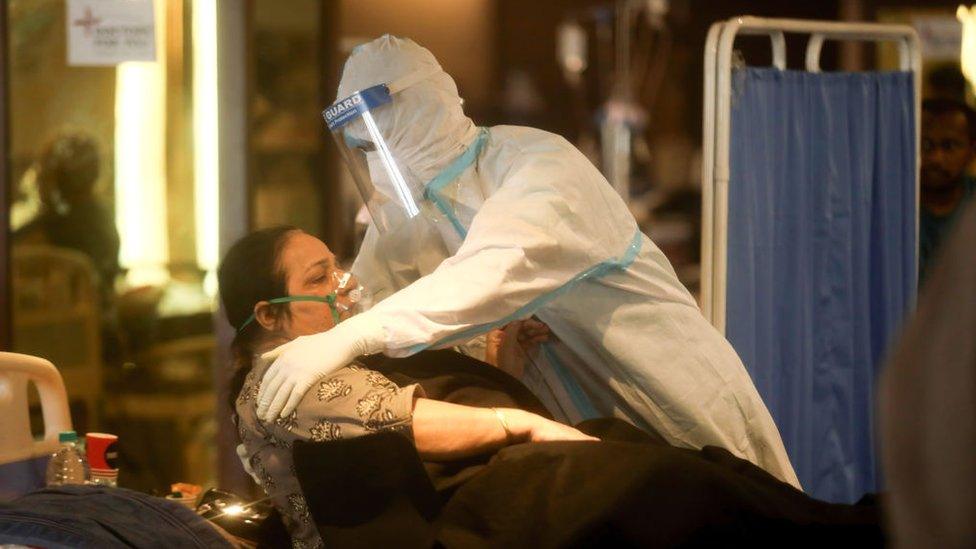
- Published18 May 2021
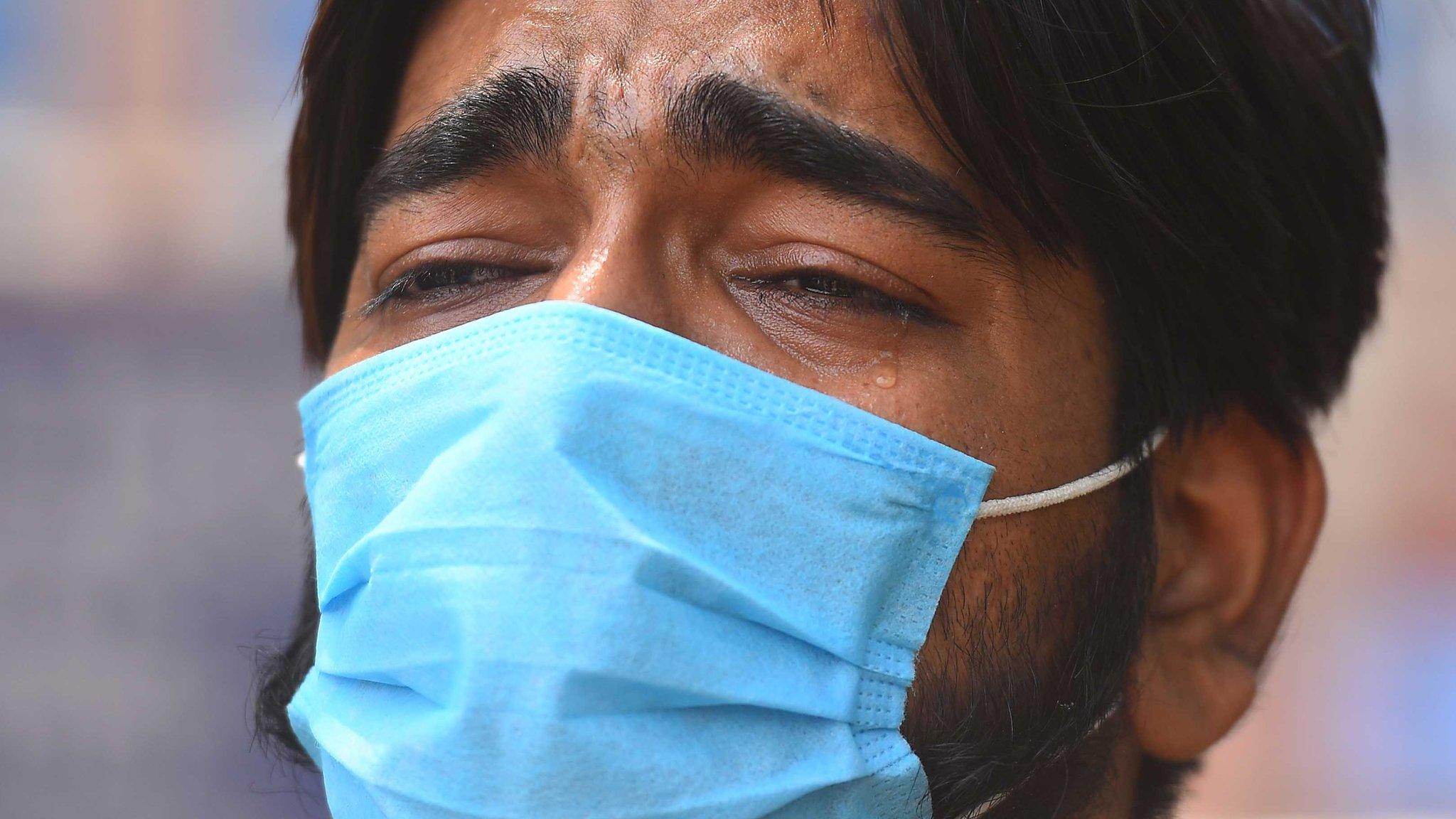
- Published14 May 2021
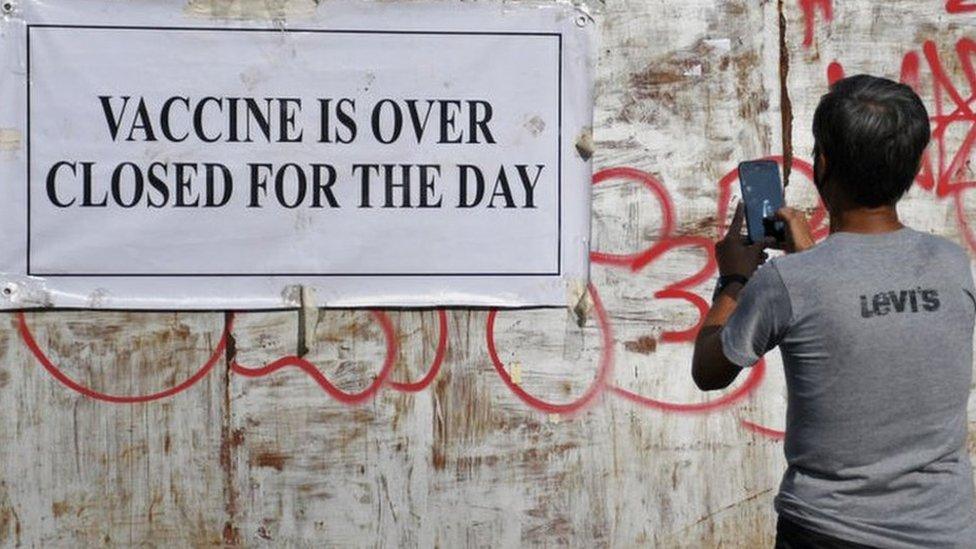
- Published11 May 2021